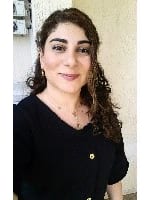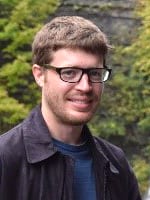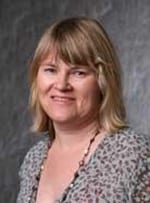Principal investigator:
- Neil Mattson, Cornell University, nsm47@cornell.edu
Co-principal investigators:
Anusuya Rangarajan, Cornell University, ar47@cornell.edu
Miguel Gomez, Cornell University, mig7@cornell.edu
Marianne Nyman, Rensselaer Polytechnic Institute (RPI), nymanm@rpi.edu
Team profiles:
 Eyosias Ashenafi
Eyosias Ashenafi
Ph.D. Candidate – Environmental Engineering, Rensselaer Polytechnic Institute (RPI)
ashene@rpi.edu
Eyosias is a Ph.D. student in Environmental Engineering at Rensselaer Polytechnic Institute working in Dr. Nyman’s group. His research will focus on method development for quantification of plant pigments. In addition, he will be studying spectral effects on biomass, nutrient composition and water use efficiency (WUE) in leafy greens. He earned his Bachelor’s degree in Civil and Environmental Engineering from Calvin College.
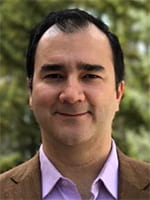 Leslie Verteramo Chiu
Leslie Verteramo Chiu
Research Associate – Cornell University
ljv9@cornell.edu
Leslie’s research area includes risk management for smallholder farmers, food-value chains, bioeconomic modelling, and agricultural finance. He received a Ph.D. in Applied Economics from Cornell University, master’s degree in quality and productivity from the Instituto Tecnológico y de Estudios Superiores de Monterrey in Mexico, and a bachelor’s degree in business and economics from Sophia University in Japan.
Michael Eaton
Research Support Specialist, Cornell University
ME442@cornell.edu
Michael is a mechanical engineer and energy modeling specialist in the CEA group at Cornell University. Michael holds a B.S. and M.S. in Mechanical Engineering from the University of Massachusetts, Amherst with a concentration in thermo-fluids and energy. Previously, Michael worked as an Energy Engineer at the Massachusetts utility company Eversource, where he provided analysis for energy efficiency projects in the commercial and industrial sectors. Michael joined Cornell as a research support specialist in July of 2018. His research focuses on modeling the energy systems involved in urban agriculture under controlled environments.
Maya Ezzedine
Ph.D. Candidate, Cornell University
ME438@cornell.edu
Maya is an environmental scientist and sustainability specialist currently pursuing her PhD at Cornell University under Dr. Anu Rangarajan. Her PhD project focuses on the development of the urban agricultural movement and how it weaves together society, technology, food security, economics, and sustainability. Maya holds a B.S. in Environmental Science from the University of California, Davis (UC Davis) and a M.S. in Sustainability Management from Columbia University.
 Miguel I. Gómez
Miguel I. Gómez
Associate Professor -Applied Economics and Policy, Cornell University
MIG7@cornell.edu
Professor Gómez concentrates his research and extension program on two interrelated areas under the umbrella of food marketing and distribution: One is Food Value Chains Competitiveness and Sustainability. His work in this area involves multi-disciplinary collaborations and my primary contribution is the development models to assess supply chain performance in multiple dimensions – economic, social and environmental. The second is Food Value Chain Negotiation. Here he combines theory and outreach methods, emphasizing key concepts such as price transmission, demand response, buyer-seller negotiations, market power, and retail performance. In addition, his research in this area extends to economic development. Specifically, he examines the incentives and barriers of smallholder farmer participation in food value chains with emphasis in Latin America. The scope of his research and extension program is domestic and international, the latter emphasizing food value chains in Latin America and the Caribbean. In addition, his applied research efforts aim at enhancing market opportunities for horticultural products (fruits, vegetables and ornamentals), benefiting producers, food processors/distributors and consumers worldwide.
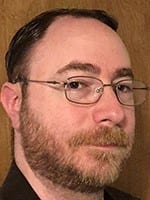 Kale Harbick Ph.D.
Kale Harbick Ph.D.
Research Associate, Cornell University
KH526@cornell.edu
Kale Harbick studied computer science and robotics at the University of Southern California, earning a Ph.D. in 2008. He researched crater detection for Mars landers and autonomous helicopters at NASA-JPL, before shifting his career focus to energy. Kale taught many courses in physics and energy management for over 10 years. He managed a program at Oregon Department of Energy which implemented energy efficiency measures in over 800 K-12 schools. He was twice asked to testify for the Oregon State Legislature on residential energy efficiency programs. In 2015 he co-founded Greenhouse Logic, a consulting firm for CEA. His current research in the CEA group at Cornell focuses on environmental controls and modeling of energy and light.
Jacob Holley
Ph.D. Candidate, Cornell University
Jmh596@cornell.edu
Jake Holley joined the Cornell CEA group as a PhD student in the summer of 2018. After receiving his masters in Horticulture at UC Davis, Jake worked as a researcher at LumiGrow, a horticultural LED manufacturer located in Emeryville, CA. During his time at UC Davis, Jake’s work focused primarily on floriculture crops, like orchids and chrysanthemums. At LumiGrow, he gained experience working with greenhouse vegetables including lettuce and strawberries. Jake’s work at Cornell focuses on leafy greens and lighting strategies to improve crop yield, reduce energy demand, and increase water use efficiency.
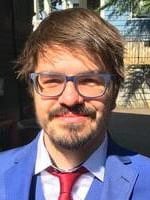 Wythe Marschall
Wythe Marschall
Ph.D. Candidate – Department of History and Science,Harvard University
wmarschall@fas.harvard.edu
Wythe Marschall is an anthropologist of technology finishing his Ph.D. at Harvard University. He writes about future visions of farming, biotechnology, urban planning, and plant–human interactions in general. Wythe’s dissertation examines the rise of vertical farming in New York City. Previously, Wythe wrote the popular YouTube show Crash Course: History of Science; co-founded the Biodesign Challenge; lectured in the English Department of Brooklyn College, CUNY (where he received his MFA in 2009); taught science fiction and the history of the life sciences at Harvard; and curated art-and-science exhibitions. Wythe also worked for many years in health and wellness advertising.
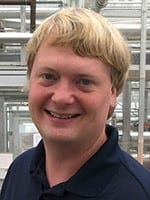 Neil Mattson
Neil Mattson
Associate Professor, Cornell University
Neil.mattson@cornell.edu
Dr. Neil Mattson, is associate professor in the School of Integrative Plant Science having joined Cornell University in 2007. He serves as a statewide greenhouse specialist with research and outreach programs focusing on the physiology of both vegetable and flower crops. His work emphasizes strategies to optimize crop production while reducing energy use through improved lighting and greenhouse control systems, plant mineral nutrition, and plant stress physiology. He has authored or co-authored 52 peer reviewed journal articles and 139 extension articles (bulletins, trade journal articles) and given more than 205 outreach presentations to >10,000 agriculture industry members. Mattson is director of Cornell’s Controlled Environment Agriculture group.
 Charles Nicholson
Charles Nicholson
Associate Adjunct Professor
cfn1@cornell.edu
Chuck Nicholson is an agricultural economist and food system modeler who works in the Dyson School of Applied Economics and Management. His background includes research and teaching in the areas of food economics, agricultural systems analysis and food supply chain management. For this project, he is the principal researcher on the economic and environmental impacts of CEA systems. He has MS and PhD degrees in agricultural economics from Cornell and an undergraduate degree in economics from UC Davis
Marianne Nyman
Associate Professor – Civil and Environmental Engineering, Rensselaer Polytechnic Institute (RPI)
nymanm@rpi.edu
The goal of Dr. Nyman’s research program is to advance the study of environmental hydrophobic organic compounds (HOCs) including their fate, transport, and remediation in many media including soil, water, and plants. The specific projects aim to address this goal through development of better fate and transport models, the introduction of faster and more cost-efficient remediation of contaminated environments, and more recently method development of nutrient analysis of crops grown under different conditions including CEA. Dr. Nyman has been teaching at RPI for more than 20 years. She has graduated several Ph.D. and M.S. students in Environmental Engineering over the 20 years of service at RPI.
 Anusuya Rangarajan
Anusuya Rangarajan
Director, Cornell Small Farm Program
ar47@cornell.edu
Dr. Anu Rangarajan has been on the faculty of Horticulture at Cornell University since 1996. She serves as the Statewide Fresh Market Vegetable Specialist and conducts a grant-funded research and extension program focused on environmental and economic sustainability of vegetable farms in the Northeast. Her current research focus is on reduced tillage systems for vegetables to improve soil health while maintaining crop quality and yields. She also directs the Cornell Small Farm Program (www.smallfarms.cornell.edu). The program’s mission is to help farmers get expert assistance to facilitate all phases of small farm business development, from startup to growth to maturity. Through collaborations with Cornell Cooperative Extension Educators and other service providers, the program provides online and face to face training on numerous topics, including new farm development, helping veterans enter agriculture, expanding wholesale marketing and local food systems, building soil health, and supporting mushroom and livestock production.




